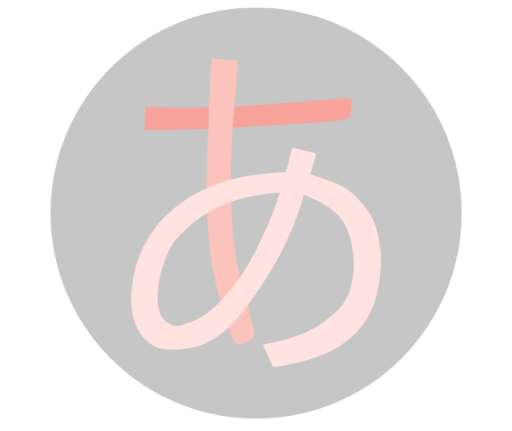
Free Japanese Quiz
for Beginners
conditional
36-1
A + と、B
A + ば、B
A + たら、B
Noun なら
… と / たら、Verbました
どうすればいいですか?
どうしたらいいですか?
Please fill in the blanks.
( The answer is not necessarily only one. )
Please touch “answer” to see the answer.
1.
つぎの しんごうを ひだりに ( )、ゆうびんきょくが あります。
Please turn left at the next traffic light, and you’ll find the post office.
2.
( )、まにあいます。
If you hurry, you can catch the bus.
3.
もし バスが すぐに ( )、タクシーで いきます。
If a bus does not come soon, I’ll go by taxi.
4.
( )、あとで また きます。
If you’re busy now, I’ll come back later.
5.
あした ( )、いっしょに いきませんか?
If you’re free tomorrow, would you like to go with me?
6.
( )、かいます。
If it is 500 Yen, I’ll buy it.
7.
もし もりさんに ( )、らいしゅう あえるかどうか きいてみてください。
If you see Mr.Mori, please ask him if we can meet next week.
8.
もし じかんが ( )、あいにきてください。
If you have time, please come to see me.
9.
くうこうに ( ) でんわ してください。
Please call me when you get to the airport.
10.
A : じてんしゃを かいたいです。
B : じてんしゃ ( )、すずきさんが かってくれるひとを さがしていましたよ。
A : I want to buy a bicycle.
B : If so, Mr.Suzuki was looking for someone to buy his bicycle.
11.
まどの そとを ( )、ゆきが ふっていました。
When I looked out the window, it was snowing.
12.
けいたいでんわを けいやく したいんですが、( )?
I’d like to contract for a mobile phone. What should I do?

Grammar
| と | always happen |
| ば | always happen if … |
| たら | always happen if… after … |
| Noun なら | topic |
A と、B
always happen
After something happened or someone did some kind of action, inevitable result follows. The result always happens no matter who does.
( When I press the switch, TV is on. )
You can say about natural phenomenon.
( In Hokkaido it snows when winter starts. )
It is often used when you give directions to someone.
( If you go straight, you’ll find a supermarket. )
A ば、B
always happen
The usage is same as “と”.
( When I press the switch, TV is on. )
( In Hokkaido it snows when winter starts. )
( If you go straight, you’ll find a supermarket. )
if …
It means “if … “.
( If it rains tomorrow, I won’t go fishing. )
If you fulfill a condition of the first sentence, you can achieve a thing of the following sentence.
( If I wear glasses, I can see it. )
( If you go to Hokkaido, you can ski. )
note
After a conditional clause using the conditional form (-ば) of “an action verb”, you can not say the expressions of something you want, order or request in the following sentence.
| ほっかいどうに いけば、 | スキーを スキーを スキーを |
You can say these expressions with a conditional clause using “-tara(たら) form”.
| ほっかいどうに いったら、 | スキーを したいです。 スキーを しなさい。 スキーを してください。 |
Verb Conditional Form、…
Verb nai Form (い) -ければ、…
i-Adjective (い) -ければ
i-Adjective (ない) -ければ
na-Adjective -なら
na-Adjective -じゃなければ
Noun -なら
Noun -じゃなければ
A たら、B
always happen
( When I press the switch, TV is on. )
( In Hokkaido it snows when winter starts. )
( If you go straight, you’ll find a supermarket. )
if …
( If it rains tomorrow, I won’t go fishing. )
( If I had money, I would go to France for studying. )
( If I wear glasses, I can see it. )
( If I go to Hokkaido, I want to ski. )
after
It means “after something happened, you have plan to do something”.
( After I eat dinner, I’m going to take a shower. )
( After Ms.Sato came, we’ll start the meeting. )
Verb ta Form ら、
Verb nai Form (い) かったら
i-Adjective(い) -かったら
i-Adjective(ない) -かったら
na-Adjective -だったら
na-Adjective -じゃなかったら
Noun -だったら
Noun -じゃなかったら
Noun なら
topic
The topic was brought up by the person you talk to.
“Nounなら” is used to say your personal idea or give some advice about the topic.
( I’m going to go to Kyoto on Sunday. )
B : きょうとなら、とうふが おいしいですよ。
( If you go to Kyoto, I recommend Tofu. )
… と / たら、Verb ました
I found
As a result of “Clause A”, you found something. “Clause B” is past tense ( Verb-ました ).
ドアを あけたら、ねこが いました。
( When I opened the door, I found that there is a cat. )
どうすればいいですか?
どうしたらいいですか?
asking for advice
It means “What should I do?”. It is used to ask for advice.
よやくを キャンセル したいんですが、どうすればいいですか?
( I’d like to cancel my booking, but … what should I do? )
1. Cherry blossoms bloom when spring starts.
2. If you go by car, you’ll arrive at 6.
3. If you finish working early, please visit us to my house.
4. After I graduate from university, I want to work in the US.
5.
A : I’m going to Asakusa.
B : If you go to Asakusa, please try to eat ‘Monja’.
A : あさくさに いくんです。
B : ( ) もんじゃを たべてみてください。
6. When I opened the curtains, I could see the sea.
7. I want rent a room, but … what should I do?
へやを かりたいんですが、( )?
link
Japanese broadcasting station, NHK site helps you to learn Hiragana, Katakana, and Kanji.
